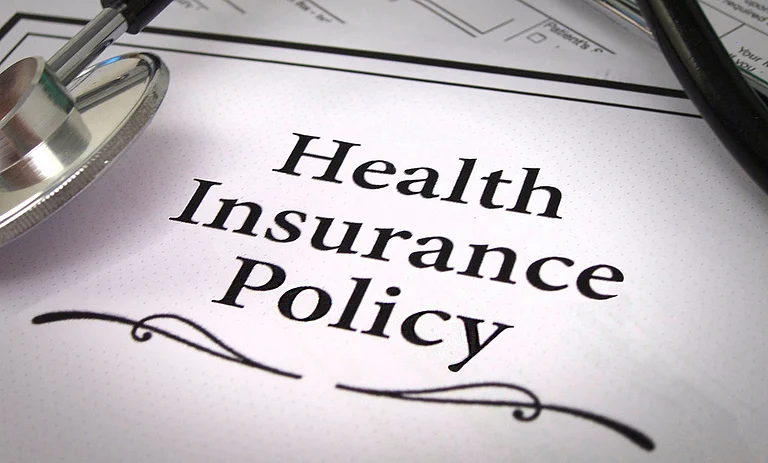Hypertension, also called 'silent killer', is a chronic condition which often goes unnoticed until it surfaces in the form of other serious medical emergencies such as a stroke, heart attack, or kidney failure. According to the World Health Organisation, over 220 million people in India are estimated to be living with high blood pressure. Such a widespread presence of this condition makes it a health issue that needs to be understood in terms of insurance and its coverage.
Regarding health insurance, hypertension often reveals a blind spot in what people assume they are covered for versus what's actually covered.
Disclosure Can Make or Break Your Claim
One of the most common mistakes people make is assuming that if they are managing their hypertension well, there is no need to mention it in their health insurance application. That assumption can be costly.
"If hypertension is not disclosed at the time of policy purchase, insurers can reject the claim, not just for hypertension-related issues, but even for unrelated illnesses," says Pankaj Nawani, CEO at CarePal Secure. "It's a breach of the principle of uberrima fides, utmost good faith, that insurance contracts are built on."
And it's not just about ticking a box. Attention is paid to details like the date you were diagnosed if you are medicated, and how controlled your readings are. Insurers have even been known to verify this through telemedical assessments or medical check-ups prior to issuing the policy.
What about the 'Waiting Periods"?
Even when hypertension is declared upfront, many policyholders are caught off guard by the waiting period clause. Health insurance policies in India generally classify hypertension as a pre-existing disease (PED), which means any complications arising from it, say a heart attack or chronic kidney disease, are not covered immediately.
"Typically, the waiting period ranges from two to four years," says Siddharth Singhal, Head of Health Insurance at Policybazaar, an online insurance marketplace. After that, coverage begins, but only if the disclosure was made correctly. "People wrongly assume they can claim immediately if they feel fine when buying the policy," Singhal adds. "But if it's pre-existing and not declared, insurers have the right to deny claims even years later."
What Happens After the Waiting Period Ends?
Once the waiting period is over, most standard health insurance plans begin offering full coverage for hypertension-related complications. That includes hospitalisation, surgeries, ICU costs, and even post-hospitalisation expenses like follow-up consultations and medicines.
"After the PED waiting period ends, the policy is obligated to cover complications such as heart attack, stroke, or hypertensive retinopathy," Nawani explains. "But again, this hinges on proper disclosure and a completed waiting period."
Some plans do allow for shorter waiting periods or day-one coverage for pre-declared conditions, but only if explicitly chosen, and often at a higher premium or with specific riders.
Don't Assume You're Covered for Routine Care
One grey area for many is outpatient care, doctor consultations, long-term medication, and diagnostic tests that are part of ongoing hypertension management. These are rarely covered under basic health insurance.
"Traditional policies usually focus on hospitalisation," says Ashish Yadav, Head of Products and Operations at ManipalCigna Health Insurance. "OPD benefits are available, but only under enhanced plans or through optional riders."
If you are someone who frequently visits a cardiologist or needs regular BP medication, check if your plan includes or offers OPD cover. If not, you'll be paying for it out of pocket.
Underwriting Depends on Control, Not Just Age
It is a common myth that age is the biggest factor affecting your premium if you have hypertension. In reality, insurers focus more on how well the condition is controlled.
"If your blood pressure is managed within moderate levels, you may still get standard premiums," says Yadav. "But if it's uncontrolled, expect loading (higher premiums), or in some cases, policy exclusions or co-payment clauses."
For Seniors, the Fine Print Really Matters
Senior citizens with a history of hypertension need to be especially vigilant when buying a policy. Some policies come with lifetime exclusions for certain conditions, which might include hypertension. Others may require you to go for the co-payment option where you bear part of the claim amount, say 20 per cent or even 30 per cent.
Look out for:
- Length of the PED waiting period
- Whether hypertension is permanently excluded
- Co-payment terms
- Sub-limits on treatment
Coverage for related complications like heart disease or stroke
"Shorter waiting periods, no permanent exclusions, and comprehensive coverage should be the top priorities," Nawani notes.
Can regular monitoring and control of hypertension impact underwriting or renewals?
Says Priya Deshmukh, Head Health Products, Operations and Services, ICICI Lombard, "Effective management and regular monitoring of hypertension can significantly influence both health insurance underwriting and renewal processes."
Insurers recognise that individuals who actively manage their hypertension through regular health check-ups, medication adherence, and healthy lifestyle choices pose a lower risk. "As a result, well-controlled hypertension may lead to more favourable underwriting decisions, including eligibility for standard premium rates."
The Bottom Line
Health insurance does cover hypertension, but only if you have been transparent and have chosen the right policy structure.
World Hypertension Day, observed on 17 May, is not just about checking your blood pressure. It's also a good reminder to review your policy, understand your coverage, and ensure you are protected, not just on paper but in practice.














